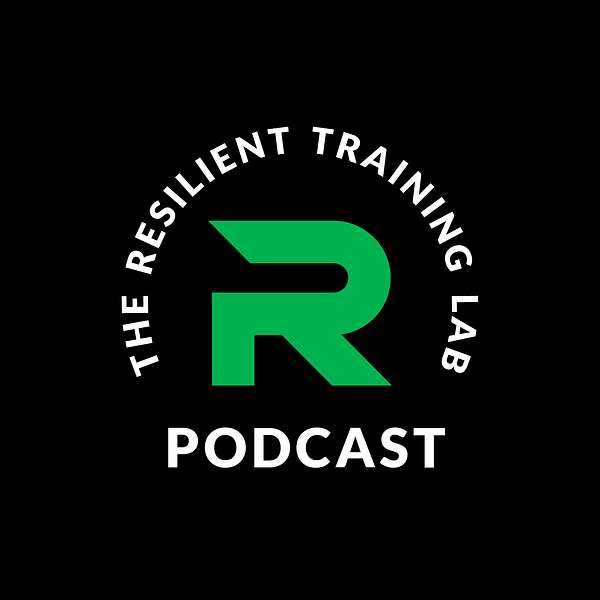
The Resilient Training Lab Podcast
The Resilient Training Lab Podcast
RTL94 When and Why to Modify Training
Here is a solo episode with Paul and Ryan! They discuss what you need to know about modifying training. When do you know when it is time to change it up and why are some reasons that you might consider making some modifications. Some common reasons you might want to switch up your training include being unmotivated and dragging your feet to the gym, you have another interest/hobby/commitment that is requiring more of your time, and you're currently injured. Don't be afraid to talk to your coach about how you're feeling or about what other things you have going on in your life. They can help you to make changes so that you can still kill it in the gym when you aren't feeling the same drive and motivation that you used to or when you have another goal, skill, or activity that you want to focus on more.
0:14 - Paul intros the episode with the topic of this month’s episode and the events and monthly challenge going on at Resilient. This month we have an event on June 11th with Open Doors Outdoors. We will all be getting together to hike at Sleeping Giant at 12pm. June’s challenge is max watts on the bike. Give it everything you got to crank up the intensity and get those watts as high as possible.
1:50 - Ryan goes into more detail explanation of this month’s topic of modifying training when you’re struggling in the gym, have other interests/activities going on, or are dealing with an injury. He poses the question to Paul about how you know when it is time to make changes to your training.
10:14 - Paul talks about how training your training focus away from performance and strictly your 1RM can be very beneficial to your overall training and progress. It might mean shifting your goals for the moment or just focusing on other aspects of health that training can benefit. The overall goal is to meet the physical activity guidelines and to go from there. Focus on what you can do given your current schedule and/or how you want to split your time between the gym and other activities.
14:34 - Ryan shares one of the ways he approaches making changes to his client’s programs when they are struggling or feeling unmotivated. He tries to take out the “psychologically stressful” exercises. For example, he may have a client that struggles with squat variations and find them to be very mentally taxing. He will take your typical squat variations out for a block or two to help decrease the person’s overall stress and hopefully help them to get more motivated to get to the gym each week.
17:24 - Even high level competitors can feel burnt out and unmotivated. What it comes down to whether you are an elite competitor or someone whose focus is overall improvement in health is that you need to manage your emotions and expectations. Sometimes it is best to put into training exercises that you have less expectations around so that you don’t get so caught up in the numbers you are hitting in training.
29:41 - Ryan talks about how he has modified his own training since adding in golf into his regular activities. During golf season, he makes changes so that he can still progress in golf while also still meeting his physical activity guidelines.
36:15 - It is about setting up realistic training schedules that help you meet the physical activity guidelines and managing expectations. Set minimums for yourself. Create minimums that will help make you the most successful. Manage your expectations. You can’t expect to make giant strides in squat, bench, and deadlift when your greater focus is on another sport/skill/activity.
44:00 - When you find yourself injured, it can be easy to get caught up in what you can’t do. However, the best thing you can do for yourself is focus on what you CAN do. Training might look a lot or a little different, but be okay with it and focus on goals and wins that you can achieve while injured.